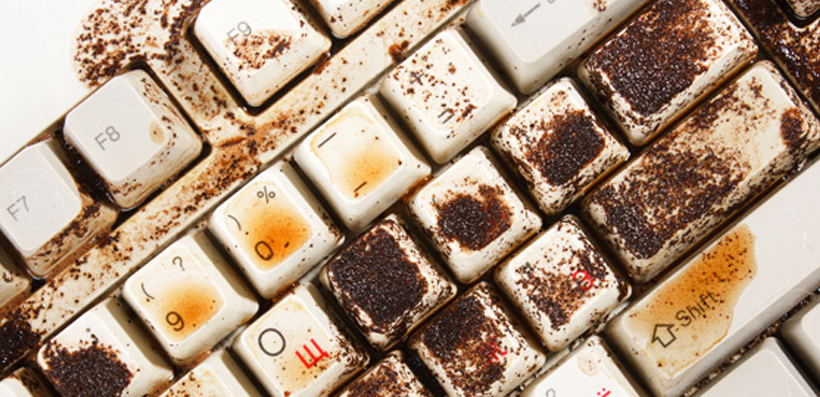
20 Simple Gardening Tips to Save You Money
April 2, 2015 | Gardening Tips | 1 comment
The garden is our own little slice of paradise and a great place to relax. But according to a 2014 survey conducted by GardeningExpress.co.uk, during our lifetimes we are spending an average of £30,000 on our gardens. Gardening needn’t be expensive, if you follow the tips below.
- Buy Wisely – Plants needn’t be costly, visit car boot sales.
- Recycle and Reuse – Turn milk cartons into watering cans.
- Plant, Prune and Fertilise – Keep your garden tidy, prune regularly.
- A Little Goes a Long Way – Get rid of ants using talcum powder.
Buy Wisely:
- When it comes to buying plants for your garden, venture to car boot sales. These can be a great place to pick up both cheap plants and affordable second hand tools.
- Don’t shy away from planting perennial plants, as these often work out cheaper in the long term – and still bring a wall of colour to your garden.
- Swapping samples and cuttings with your green-fingered friends is a great way to bring new plants into your garden without spending. Along with swapping with friends and colleagues, try websites such as gardenswapshop.co.uk.
- Size doesn’t matter when it comes to buying plants. Whilst larger plants and shrubs can look more appealing, they are likely to be more expensive than their smaller counterparts. The latter will find it easier to acclimatise to their new surroundings too.
Recycle and Reuse:
- Your plastic milk cartons, yoghurt pots and egg boxes can all be recycled and used in your garden. Milk cartons for example are great as make shift watering cans, whilst yoghurt pots and egg boxes can be used as plant pots for seeds.
- In 2012, almost a third of councils across England charged for green waste to be collected – but why pay, when the waste can be recycled at home to help your garden.
Everything collected as part of your green waste can be added to a homemade compost bin, and once degraded, used to fertilise your garden.
- Rain is far from uncommon in the UK, but there is a silver lining to the amount of rain we get. Rainwater can be stored in a water butt and used throughout the garden.
- Using hanging baskets? If so, don’t use traditional hanging basket liners, instead recycle old knitted tops.
Plant, Prune and Fertilise:
- If you’re particularly green-fingered consider growing from seeds. This will work out much cheaper in the long run, especially as you can get offers on packets of seeds, such as 3 for 2s.
- Use mulch on your flowerbeds, as this can help save you money in the long term due to enabling the soil to hold its moisture, meaning you need to water the flowerbeds less. Organic mulch has the added benefit that it breaks down over time helping to improve the soil.
- Fertilising your garden? Opt for a multi-purpose fertiliser which includes fish, bones and blood, as this can be used in various areas of your garden to great effect.
- Prune carefully and regularly, as this will not only help your garden look tidy but it’ll also allow other plants get the sunshine they require to grow. For advice on how to prune your garden, visit the pruning section on the RHS website.
- Grow your own fruit and vegetables in your garden – even those who aren’t green fingered should be able to successfully grow some fruit, veg and herbs such as potatoes, runner beans, rhubarb and rosemary.
- Plan your garden. This will ensure you’re a) planting stuff at the right time of year and b) you’re not spending money on plants you’re not likely to plant.
In addition to planning ahead, make sure you carry out the right gardening tasks during the right time of year. To help, the RHS have a monthly gardening guide available on their website.
- Take cuttings of your plants, shrubs and herbs. To take a successful cutting, make a straight cut and then remove several sets of lower leaves, leaving only one or two pairs of leaves at the tip. It’s also recommended to dip the cutting into hormone rooting liquid or powder, as this is likely to help the plant root better.
A Little Goes a Long Way:
- Stop wasting money on ant killer, instead, turn to the talcum powder. You’ll find this is an effective, yet often cheaper alternative.
- Struggling to get rid of weeds? Try full-strength white vinegar or apple cider vinegar. Spraying the vinegar onto the middle section of a weed, and close to the bottom of the stem (so it can soak into the roots) is an eco-friendly way to remove weeds.
- Through general wear and tear, our garden appliances can develop faults – such as lawnmower blades becoming blunt. But this doesn’t mean the appliance needs to be replaced, especially when sharpening or replacing the blade is an easy task to do.
- The average spent on decking and patios over a lifetime is £9,000, yet in a handful of cases a thorough clean of a decking or patio can make it look like new again.
One of the best ways to ensure a thorough clean of your patio / decking is with a pressure washer, as these make light work of removing dirt, moss and other debris. As an added bonus, the pressure washer can also be used to clean BBQs and cars.
- Having trouble with slugs? A quick tipple can help. Pour an inch of a beer into an empty coffee jar and then bury the jar up to its neck in your flowerbed. The slugs will be attracted by the beer, and crawl into the jar where they will drown.
Do you have any other tips on how to save money in the garden, without compromising on the overall look? Share them in the comments below.


One Comment
Matt
on November 4, 2016 at 3:12 pm -
I’m slightly ashamed to say I’ve probably spent a lot more on average!!